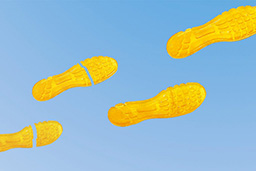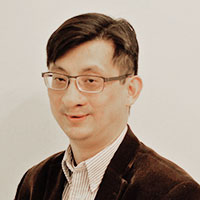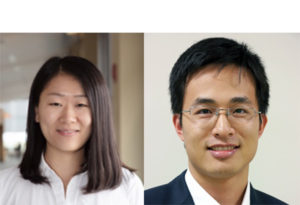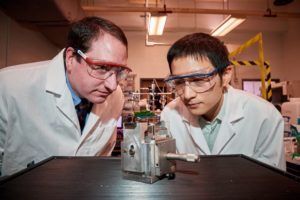Through our Senior Design Program, industrial sponsors put the bright UConn ME undergraduate students to work on a real-world problem that they are interested in researching, while reaping the benefits of our faculty’s experience and expertise. For students, this program is an opportunity to synthesize and apply the classroom engineering knowledge they have acquired. They delve further into various aspects of product development process, and are experiencing first hand how ethics affect engineering decisions, how professionals communicate ideas and the day-to-day implications of design decisions and of intellectual property.
Here is a podcast, part of Simsbury Bank’s “Manufacturing Matters” initiative, in which CEO Martin Geitz discusses a UConn Engineering Senior Design partnership with EDAC Technologies that has provided a mechanism to hire some of our talented engineering graduates while providing solutions to one of the company’s major challenges.
From left to right in the video: Kenneth Osborn (Engineering Manager, EDAC), Emily Sweeney (UConn senior), Martin Geitz (CEO, Simsbury Bank) and Prof. Vito Moreno (UConn).







